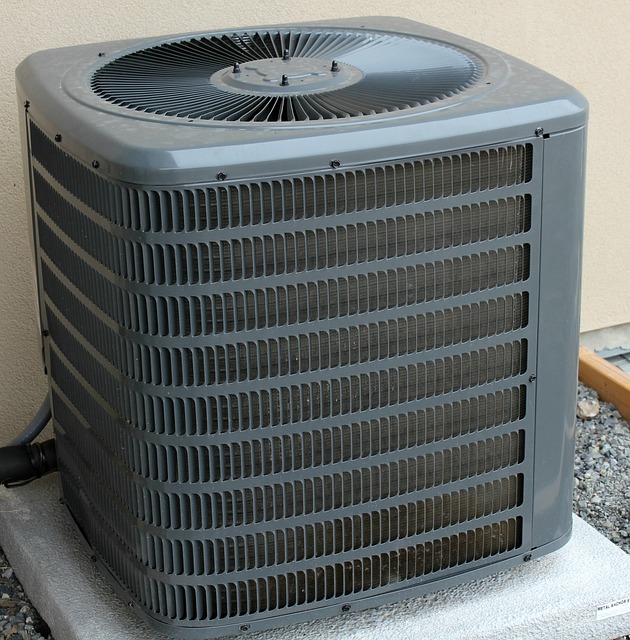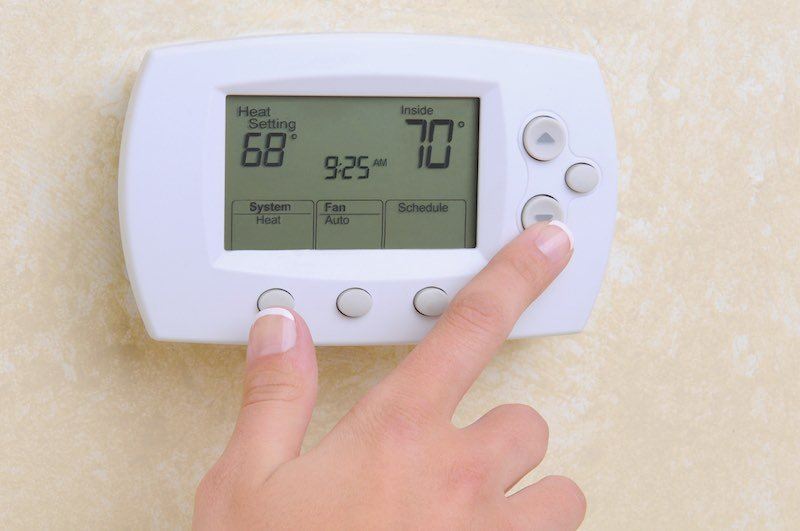Is your central AC running but not cooling your house? That’s frustrating, especially when you expect a cool, comfortable home.
You might be wondering why your system is working hard but still leaving your rooms warm. The good news is, this problem usually has simple causes you can fix. Keep reading to discover the common reasons behind this issue and what you can do to get your home feeling cool again fast.

Credit: uflacweb.velarium.com
Common Signs Of Poor Cooling
Noticing poor cooling from your central AC can be frustrating. Recognizing the signs early helps prevent bigger issues. Here are common signs that show your AC is not cooling well.
Warm Air From Vents
One clear sign is warm air blowing from the vents. The AC might be running, but the air feels hot or only slightly cool. This means the system is not cooling the air properly. Warm air can result from low refrigerant or a faulty compressor.
Uneven Temperature Distribution
Some rooms feel cooler while others stay warm. This uneven cooling shows a problem with air flow or ductwork. Blocked or leaking ducts can cause this issue. The AC struggles to keep all rooms at the same temperature.
Increased Energy Bills
Higher energy bills can mean your AC works harder than usual. Poor cooling forces the system to run longer to reach the set temperature. This extra effort uses more electricity, raising your monthly costs.
Thermostat Issues
Thermostat issues often cause a central AC to run but not cool the house. The thermostat controls the temperature and signals the AC when to start and stop. Problems with the thermostat can confuse the system and affect cooling performance.
Incorrect Settings
Sometimes, the thermostat settings are wrong. It may be set to “heat” instead of “cool.” The temperature might be set too high, so the AC does not turn on. A simple check and reset of the thermostat can fix this issue quickly.
Faulty Thermostat
A broken thermostat can send wrong signals to the AC unit. Faulty wiring or internal damage can cause the thermostat to fail. This failure stops the AC from cooling, even if it is running. Replacing or repairing the thermostat often restores proper cooling function.
Air Filter Problems
Air filter problems often cause central AC units to run without cooling the house properly. The air filter plays a key role in keeping the air clean and the system working well. Dirt and dust can block the filter, causing issues that reduce cooling efficiency.
Clogged Filters
Clogged air filters stop air from flowing freely through the system. Dust, pollen, and other debris build up over time. This buildup creates a barrier that limits airflow. The AC must work harder to push air through the filter. This extra strain can lead to poor cooling and higher energy bills.
Impact On Airflow
Blocked airflow means less cool air reaches your rooms. The AC struggles to maintain the set temperature. Poor airflow can cause the system to freeze or shut down. This leads to uneven cooling and discomfort in your home. Regular filter cleaning or replacement keeps airflow smooth and the house cool.

Credit: www.tohanamanglamdiagnostics.com
Refrigerant Leaks
Refrigerant leaks often cause central AC units to run but fail to cool your home. The refrigerant is the cooling fluid that absorbs heat from inside your house and releases it outside. When this fluid leaks, the AC cannot remove heat efficiently. This leads to poor cooling and higher energy bills.
Detecting and fixing refrigerant leaks quickly is important. Leaks not only reduce cooling but can also damage the AC compressor. Understanding the signs of low refrigerant and leaks can help you act fast.
Low Refrigerant Levels
Low refrigerant means the cooling fluid is below the needed amount. This happens because of leaks or poor installation. Without enough refrigerant, the AC struggles to cool air. The unit may run longer and still feel warm inside your home.
Low refrigerant also causes the evaporator coil to freeze. This further reduces cooling and can harm the AC parts. Checking refrigerant levels regularly keeps your system working well.
Signs Of A Leak
Leaks usually show early warning signs. The most common is warm air blowing from the vents. Your AC might run nonstop without cooling the rooms properly.
Other signs include ice buildup on pipes, hissing sounds near the indoor unit, and higher electric bills. You may also notice a musty smell from the vents. Spotting these signs early helps prevent bigger problems.
Dirty Or Blocked Condenser
A dirty or blocked condenser can stop your central AC from cooling properly. This part sits outside your home and releases heat from the refrigerant. Dust, leaves, and debris can cover the condenser coils. This blocks airflow and stops heat from escaping. The AC then struggles to cool the air inside your house.
External Unit Maintenance
Cleaning the condenser regularly keeps it working well. Remove dirt, leaves, and grass around the unit. Use a soft brush or hose to clean the coils gently. Avoid strong water pressure that can damage the fins. Trim plants and bushes near the unit to allow good airflow. Check the unit for any bent fins and straighten them carefully.
Effects On Cooling Performance
A blocked condenser raises the pressure inside the AC system. The compressor works harder and may overheat. This reduces the AC’s ability to cool your home. Energy use increases, causing higher bills. The system can wear out faster and need repairs. Keeping the condenser clean helps keep your home cool and saves money.

Credit: www.vedantinternationalschoolnikol.org
Frozen Evaporator Coils
Frozen evaporator coils are a common reason central AC units run but fail to cool properly. These coils are inside the air handler and help absorb heat from your home. When they freeze, the AC cannot cool air effectively. This problem needs quick attention to avoid damage and restore comfort.
Causes Of Freezing
Low refrigerant levels cause the coils to get too cold. Dirt and dust build-up block airflow, leading to freezing. A dirty air filter reduces air moving over the coils. Fan problems can also stop air circulation, causing ice to form. Running the AC in very cold weather may freeze the coils too.
How It Affects Cooling
Frozen coils block heat transfer, stopping the AC from cooling. Ice buildup reduces airflow, making the system work harder. The AC may keep running but blow warm air. This wastes energy and raises electricity bills. Ignoring frozen coils can cause more damage to the system.
Ductwork Problems
Ductwork plays a key role in cooling your home. It carries cold air from your central AC to every room. Problems with ductwork often cause the AC to run but not cool properly. These issues stop cool air from reaching your living space. Understanding common duct problems helps fix cooling troubles fast.
Leaks And Blockages
Leaks in ducts let cool air escape. This means less cold air reaches your rooms. Blockages inside ducts also stop air flow. Dust, debris, or small animals can block ducts. Both leaks and blockages reduce AC efficiency. You may feel warm air even if the AC runs long.
Poor Insulation
Ducts without good insulation lose cold air quickly. Warm air from the attic or walls heats the ducts. This warms the air before it enters your rooms. Poor insulation wastes energy and makes your AC work harder. Adding insulation keeps air cooler and improves comfort.
Compressor Malfunctions
The compressor is the heart of your central AC system. It pumps refrigerant through the system, helping to cool your home. When the compressor malfunctions, the AC may run but fail to cool the air. This issue needs quick attention to avoid bigger problems.
Signs Of Compressor Failure
Strange noises like buzzing or clicking can signal compressor trouble. The AC may blow warm air instead of cold. The unit might shut off frequently or fail to start. Higher electricity bills often appear with compressor problems. Moisture or leaks near the outdoor unit can also be a sign.
Repair Vs Replacement
Small compressor issues can sometimes be fixed by a technician. Repairs cost less but might only delay full failure. If the compressor is old or badly damaged, replacement is better. A new compressor improves cooling and saves energy. Experts can help decide which option fits your situation best.
Electrical And Wiring Issues
Electrical and wiring problems often cause central AC units to run without cooling. These issues disrupt the system’s power flow and control signals. The AC might turn on, but it can fail to cool the air properly. Understanding these electrical faults helps identify and fix the problem fast.
Common Electrical Faults
Loose or damaged wires can stop the AC from working well. A blown fuse or tripped circuit breaker cuts power to some parts. Faulty capacitors fail to start the compressor or fan motor. Bad relays or contactors block electrical current inside the unit. These common faults stop the AC from cooling even if it runs.
Impact On Ac Performance
Electrical issues cause the compressor to stop or run weakly. The fan may not spin at the right speed or stop altogether. The thermostat might fail to send correct signals to the unit. These problems reduce cooling power or stop it completely. The AC uses more energy but cools less, raising bills. Fixing electrical faults restores proper cooling and lowers energy waste.
Regular Maintenance Tips
Regular maintenance keeps your central AC running well and cooling your home. Small tasks help avoid big problems. You save money and stay comfortable with simple care steps.
Cleaning And Inspection
Clean or replace air filters every month or two. Dirty filters block airflow and reduce cooling power. Check the outdoor unit for leaves, dirt, or debris. Clear the area around the unit for good air flow. Inspect the evaporator and condenser coils for dirt build-up. Clean coils improve cooling efficiency. Look for any signs of leaks or damage in the system. Catching issues early prevents bigger repairs.
Scheduling Professional Service
Call a licensed HVAC technician once a year. They check refrigerant levels and system pressure. Technicians clean and tune parts you cannot reach. They find hidden problems before they worsen. Regular service keeps your AC efficient and reliable. This helps your system cool your home properly all summer.
Frequently Asked Questions
Why Is My Central Ac Running But Not Cooling?
A dirty air filter or low refrigerant can stop cooling even if the AC runs.
Can A Blocked Condenser Cause No Cooling In Central Ac?
Yes, a blocked condenser reduces heat release, causing poor cooling performance.
Does A Faulty Thermostat Affect Central Ac Cooling?
A broken thermostat may not signal the AC to cool properly.
How Does Low Refrigerant Impact Central Ac Cooling?
Low refrigerant means less cooling power, so the AC blows warm air.
Can Dirty Coils Cause Central Ac To Run Without Cooling?
Dirty coils reduce heat exchange, making the AC run but not cool well.
Conclusion
A central AC running but not cooling means a problem needs fixing. Dirt, low refrigerant, or a broken part often cause this issue. Regular cleaning and timely repairs keep your AC working well. Ignoring the problem can make your home uncomfortable and raise bills.
Calling a professional helps find and fix the issue fast. Stay cool by taking care of your AC system today.
